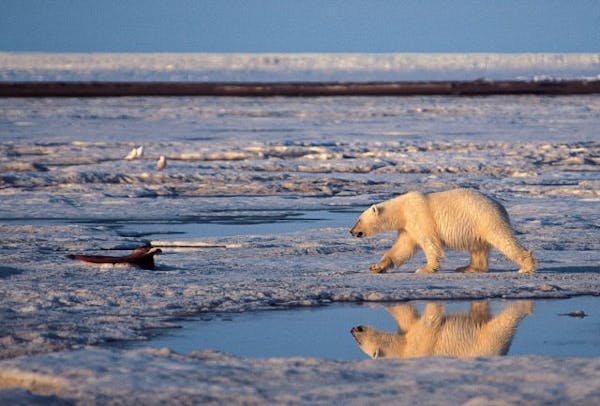Three huge issues face voters this year: the national debt, the current state of economy and the ravages of climate change. Yet in three lengthy debates, not one question from moderators or selected "undecided" voters has directly addressed that third question.
This represents a shocking failure of journalism to enhance public understanding, particularly when the difference between the two candidates on this issue could not be more stark.
As Massachusetts' governor, Mitt Romney once endorsed the science of climate change, understood that carbon emissions from coal-fired power plants were a prime culprit, and said so. But now he is in the grip of a Republican Party in full denial of those facts. "I love coal!" he blurted in the first debate, never mentioning the climate-changing carbon billowing invisibly from coal-fired power plants.
Nor has President Obama mentioned climate change, even though one of the major achievements of his presidency is the federal government's first serious action to create an American energy future built from nonpolluting sources. Yes, he has cited his broad program to create the "nation's energy future," but he's never stated why noncarbon energy is essential.
Climate change is also the context for the candidates' open disagreement over the Keystone XL pipeline, exporting to the world (not to the United States) the viciously toxic products of Canada's tar sands, a pipeline to ocean ports even Canadian citizens won't allow. Yet Romney enthuses over the pipeline while Obama ducks, neither one daring to note that the pipeline will deliver catastrophic consequences for the climate.
When asked in the middle debate about Dr. Stephen Chu, his Nobel Prize-winning energy secretary, Obama passed on the chance to describe Chu's extraordinary accomplishments. The Energy Department set up the equivalent of the research arm of the Defense Department that has brought the nation so many valuable breakthroughs, from radar to the Internet. Chu invested in clean coal technology, scaled-up solar power plants, smart conservation, a modernized energy grid, all with a 1 percent failure rate, lower than most corporate research and development programs.
The president even failed to note that gasoline prices, the concern the questioner had raised, are controlled by international cartels, not by the president or his energy secretary, and will remain so forever unless the nation captures the abundant noncarbon energy inside our borders.
I understand the straightjacket both candidates wear, with every response tested against the handful of undecided voters this late in the campaign. But recent polls show that most voters have learned from the ravages of drought this summer and the record collapse of the Arctic ice sheet -- as has the Defense Department, very worried about the destabilizing effect of climate change.
Many states and companies are acting on their own; Cargill is but one recent example. Yet how can the electorate understand why a clean energy future is so important if climate change isn't mentioned?
President Obama has placed the nation on track toward a 21st-century clean energy economy, while Romney has committed his candidacy to 19th-century coal and oil policies that will make tackling the changing climate far more difficult, if not impossible. The public deserves to understand this difference, and why it matters.
---------------------
James P. Lenfestey is a former editorial writer for the Star Tribune focusing on energy and education.
Aid votes show Congress can still work
Readers Write: Cellphones in schools, potholes, child abuse, good journalism


